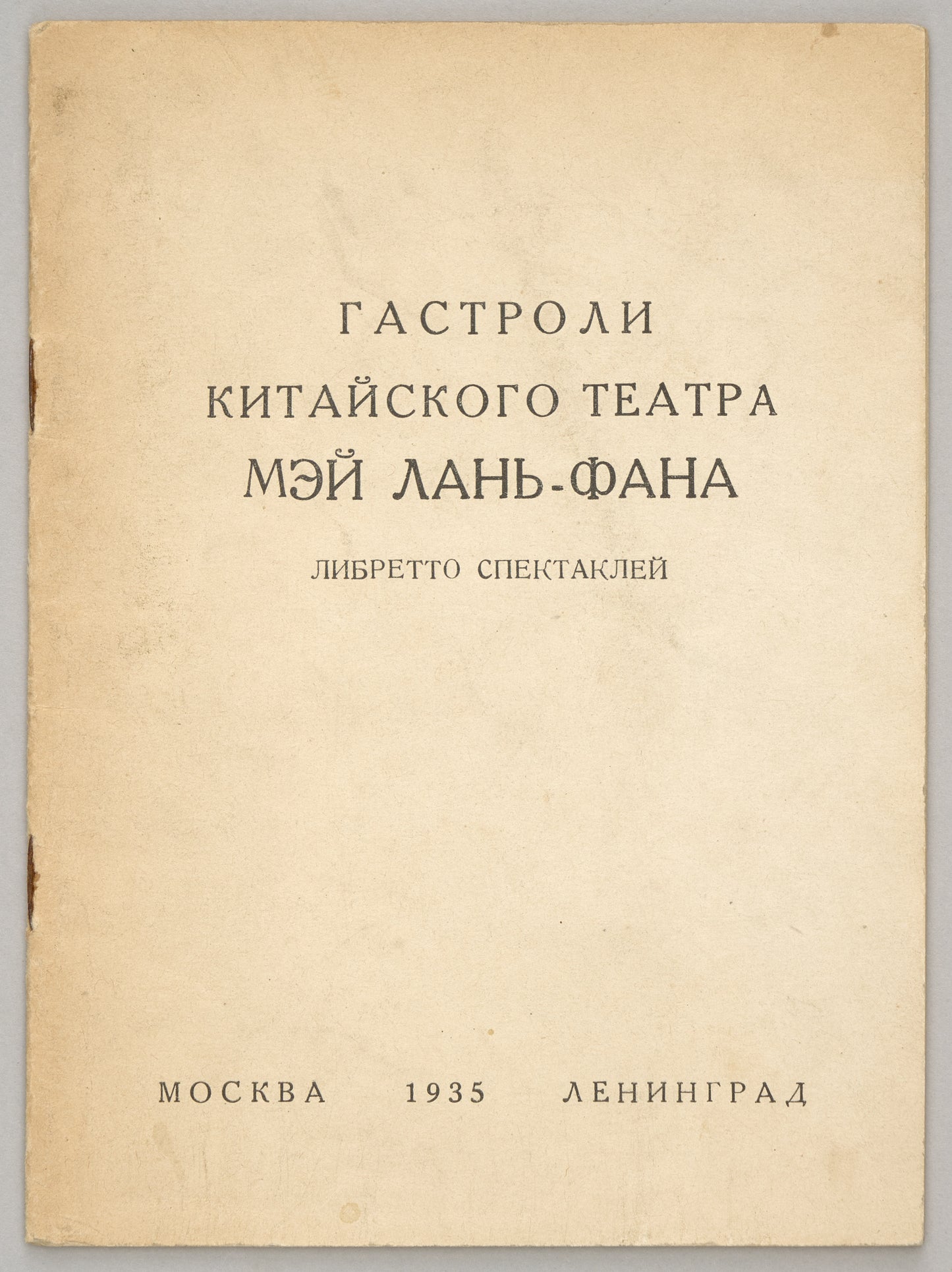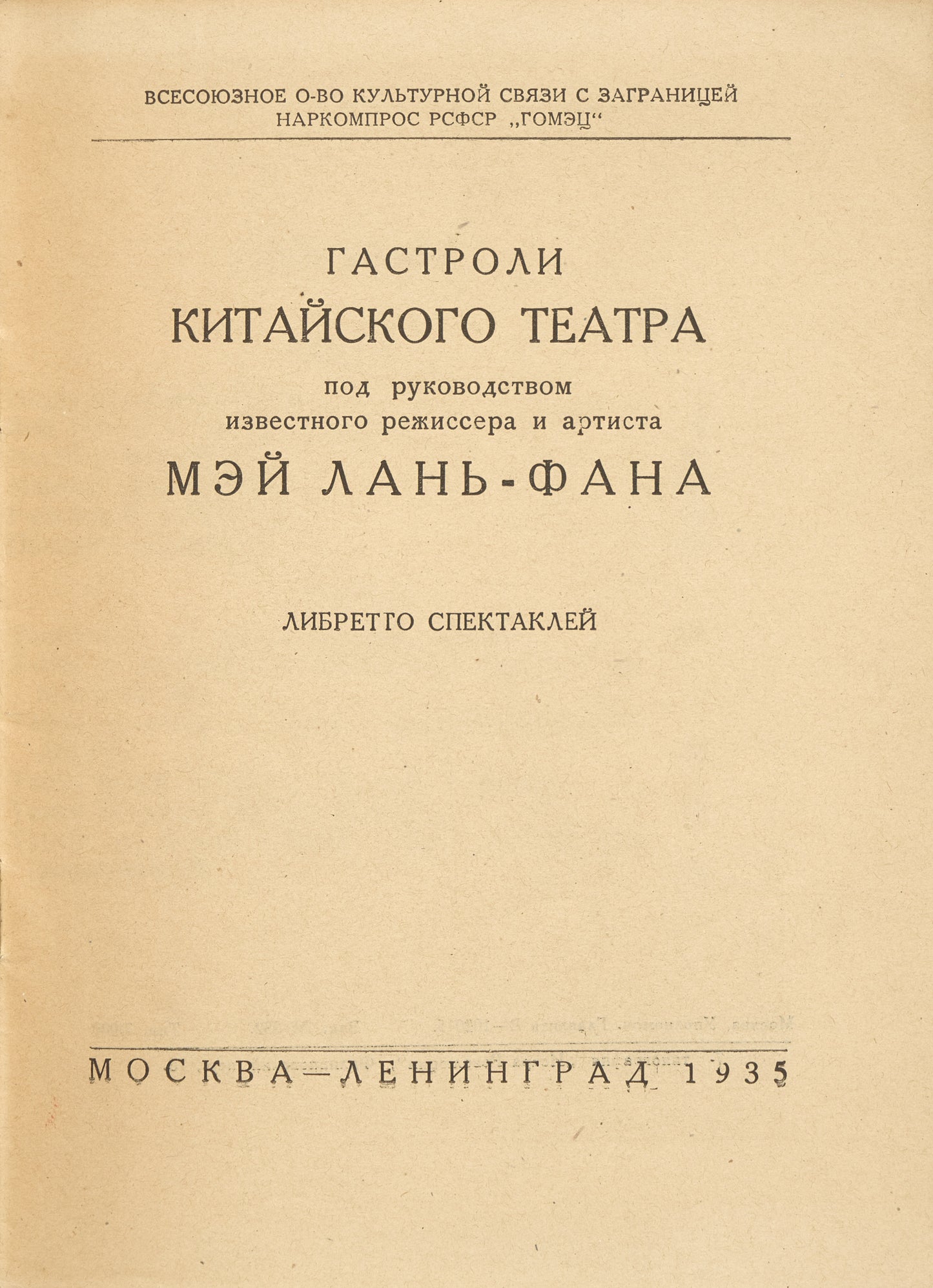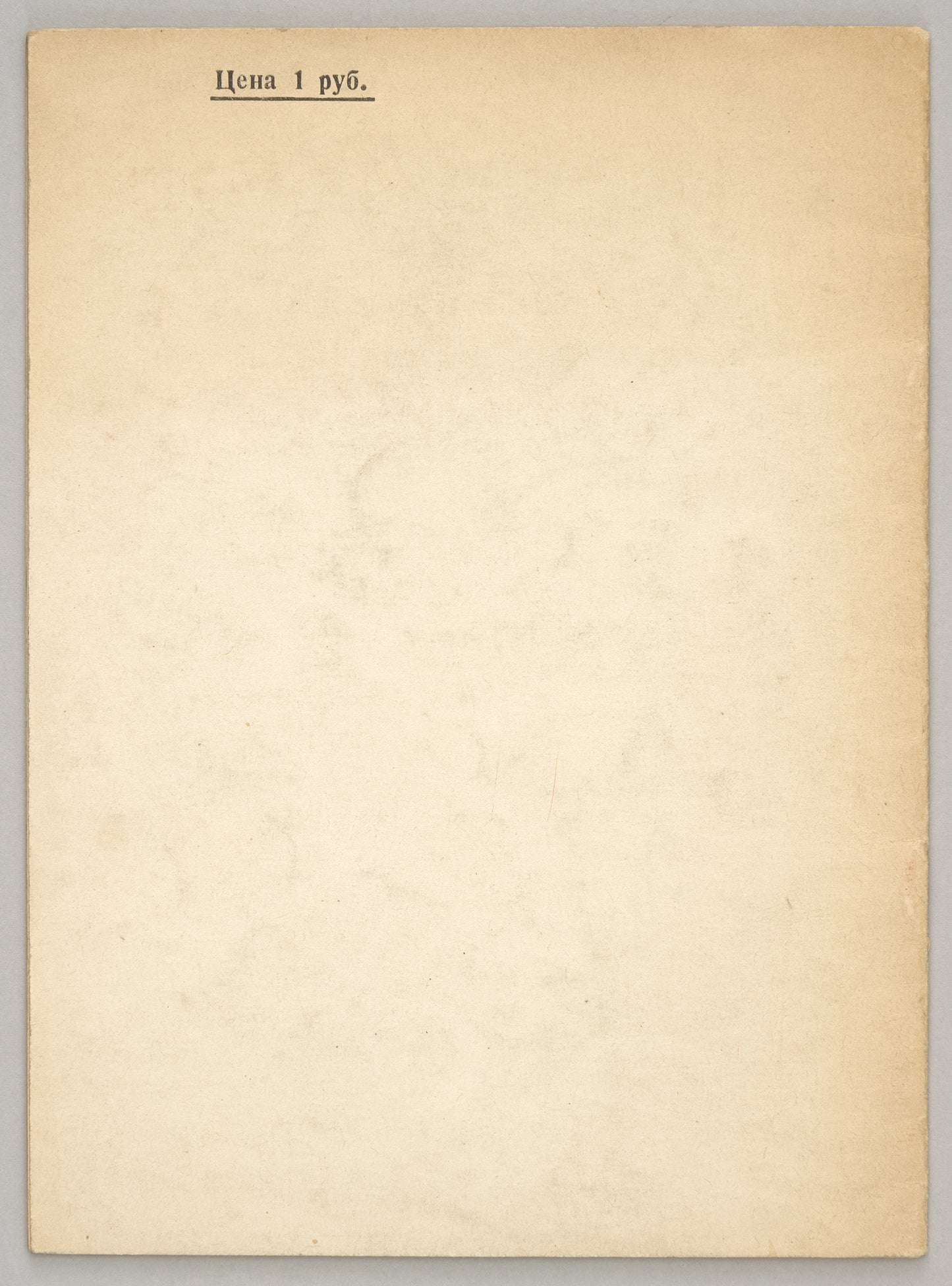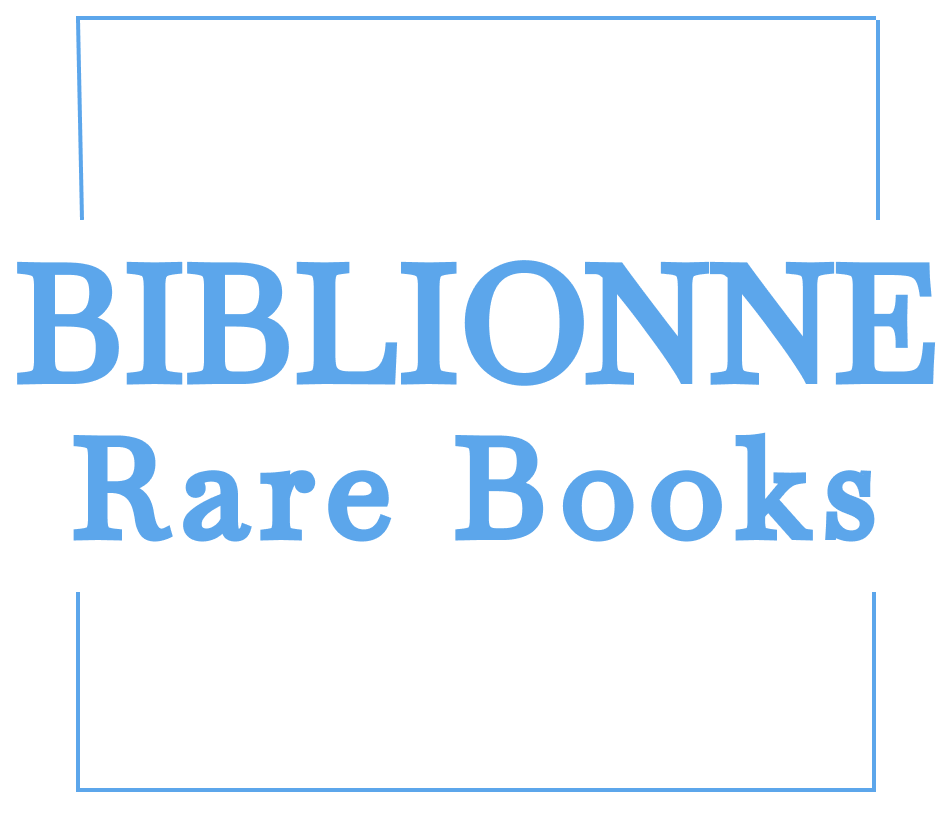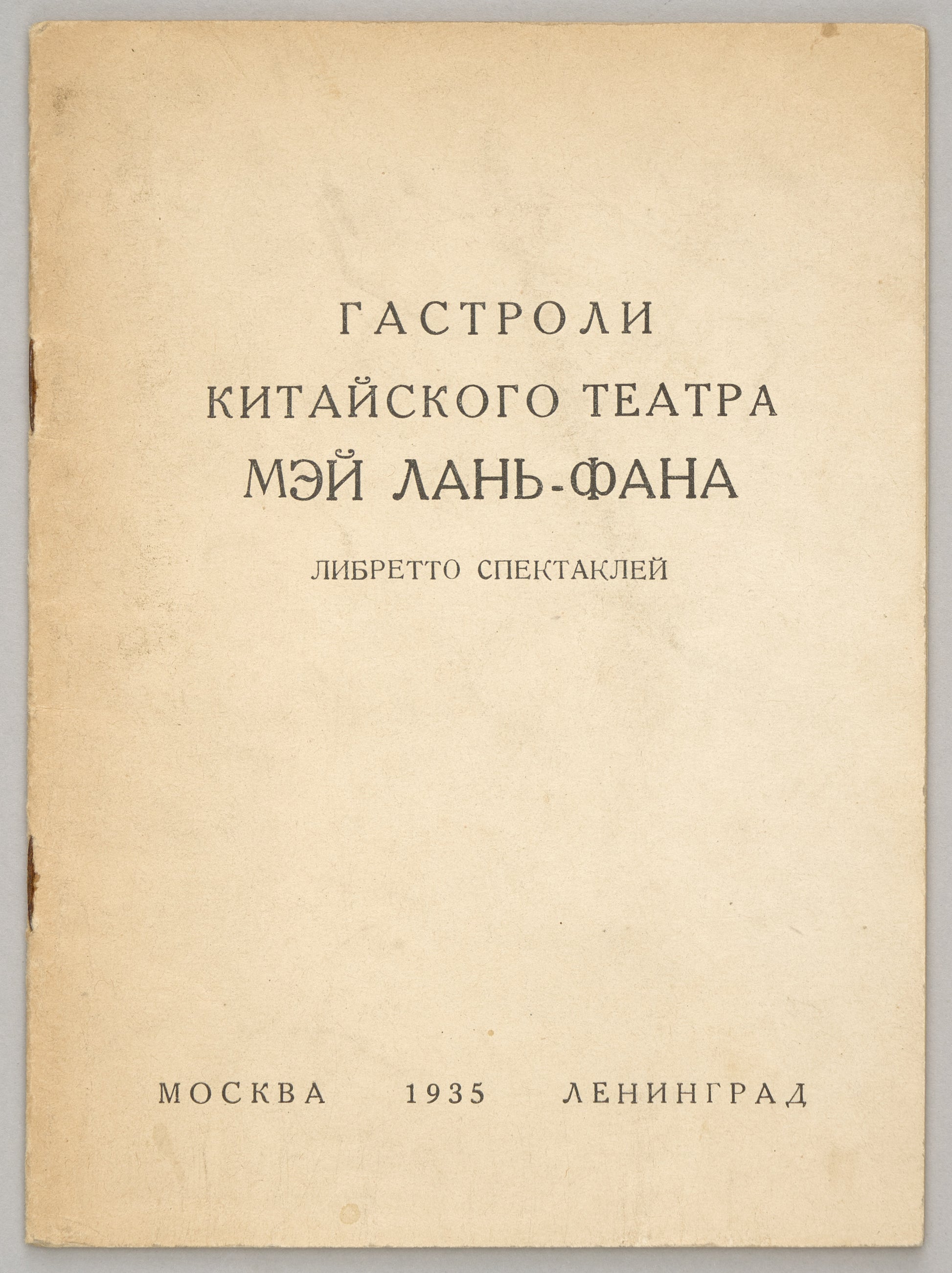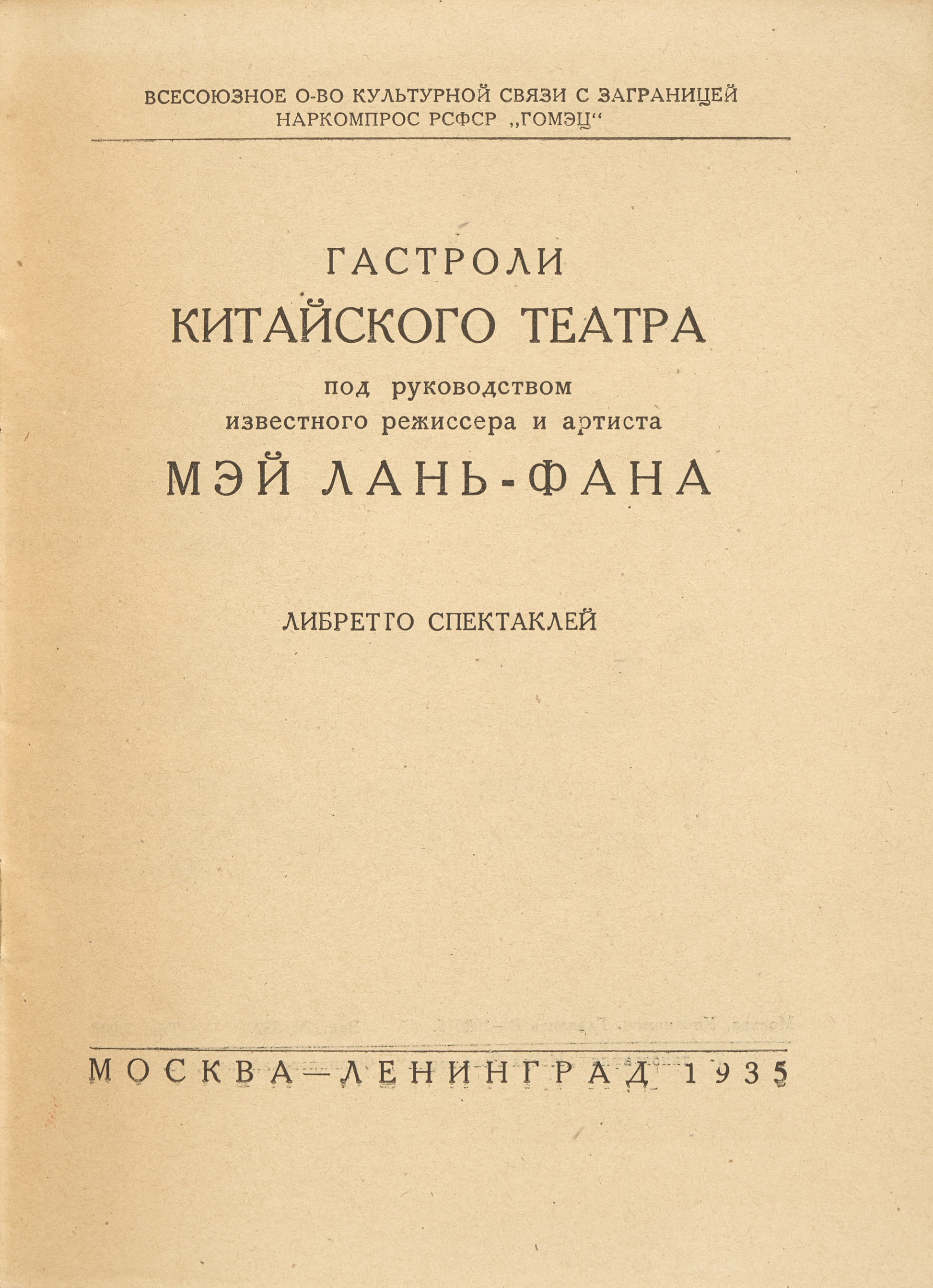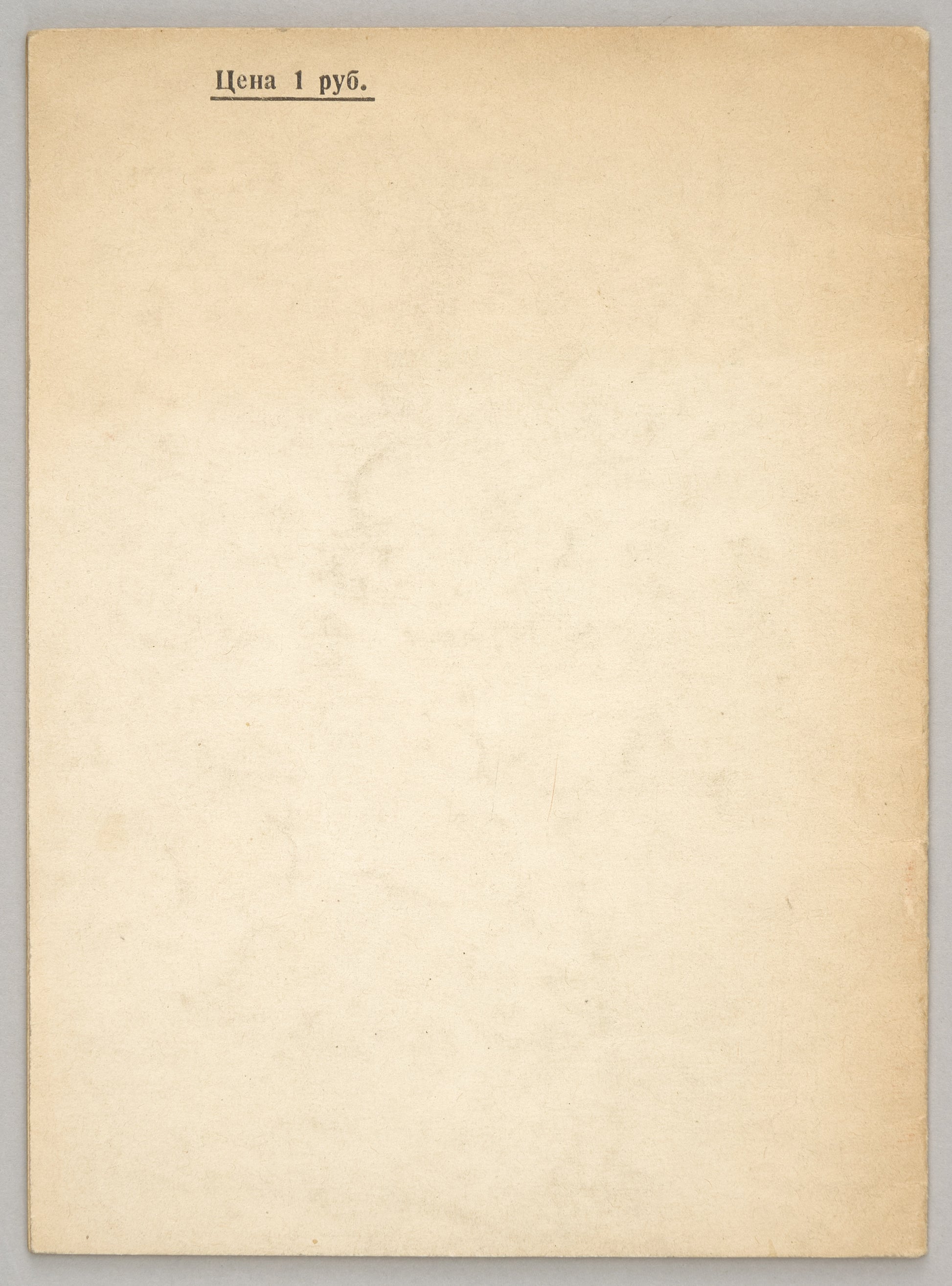Tour of the Chinese Theater Mei Lanfang. Rare edition.
Tour of the Chinese Theater Mei Lanfang. Rare edition.
Couldn't load pickup availability
[Tour of the Chinese Theater Mei Lanfang]. Gastroli Kitaiskogo Teatra Mei Lan’-Fana. Librettos.
Moskva-Leningrad, Vses. o-vo kult. sviazi s zagranitsei, Narkompros RSFSR "Gomets", 1935.
12mo, 24 pp., portrait.
In original wrappers.
In good condition, lightly rubbed, wrappers somewhat toned.
Rare. First and only edition. One of 7 000 copies published.
The 1935 Soviet tour of Mei Lanfang (1894-1961), a prominent Chinese male performer known for his portrayal of female roles, marked the first occasion when a traditional Chinese theater troupe visited Europe. This tour is considered a significant act of cultural diplomacy that helped break an impasse in foreign relations between the USSR and China, subsequently contributing to the formation of a defensive military alliance in response to escalating Japanese aggression (Japan's invasion of Manchuria in 1931).
The tour was organized by the All-Union Society for Cultural Relations with Foreign Countries (VOKS). The troupe arrived on March 12 and staged performances for six days in the Moscow Concert Hall, followed by eight days in Leningrad (where Stalin himself attended one of the performances). The tour concluded on April 13 at the Bolshoi Theater in Moscow. 'From the point of view of Soviet domestic policy, this invitation could hardly be more paradoxical: The Kremlin officially inviting and indeed welcoming, a cultural and artistic exchange with the most seductive representative of a manifestly theatrical and feudal stage tradition with men practicing cross-dressing in all female parts! In Soviet everyday life in 1935, such a guest appearance would seem puzzlingly politically incorrect: Stalin defying his own new state art doctrine of socialist realism?' (Risum, Janne The Foreign-Policy Aspect of Mei Lanfang’s Soviet Tour in 1935 // Nordic Theatre Studies. Vol. 31. No. 2. 2019. P. 91).
Interestingly, while Mei was invited to the Soviet Union on a state level, during his American tour in 1930, he had been presented as a semi-official cultural ambassador of China. During his Soviet tour, Mei's performances were witnessed by influential figures such as Konstantin Stanislavsky, Vsevolod Meyerhold, Bertolt Brecht, Alexander Tairov, Sergei Tretyakov, and Sergei Eisenstein. These artists all acknowledged Mei's influence on their artistic perspectives.
This brochure includes the librettos of six plays ('Fen River Bay/The Story of a Shoe', 'Killing the Tiger General', 'The Fisherman’s Revenge', 'Sword of the Universe', 'Rainbow Pass', and 'The Drunken Beauty') and six dances ('Sword Dance from Farewell My Concubine', 'Feather Dance from Xi Shi', 'Sleeve Dance from Birthday Blessings from Fairy Magu', 'Proceeding by Cover of Night from Mulan Joins the Army', 'Dance of Flicking Dust from A Nun’s Yearning for Mortal Life/Si fan', and 'Liang Hongyu’s Dance from Battle with Invaders').
We couldn’t trace any copy of this edition in the USA or European libraries via OCLC.
